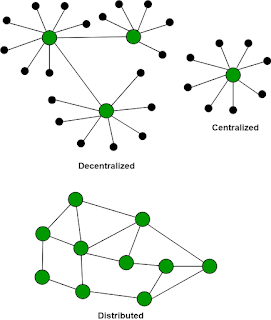What type of database is blockchain?
Distributed database
In Bitcoin, a blockchain is an immutable digital public ledger that is a continuously growing distributed database that is cryptographically secured. A blockchain stores information in uniform-sized blocks. Each block contains the hashed information from the previous block to provide cryptographic security.
A traditional database is a data structure used for storing information. This includes data that can be queried to gather insights for structured reporting used by entities to support business, financial and management decisions. The government also make use of databases to store large sets of data which scale to millions of records.
In my description of a blockchain, I am going to base it on the design used in Bitcoin. There are also private blockchains for enterprise environments, but I will discuss those later. Blockchains have only been around since 2009 when Bitcoin became the first system to implement it. In Bitcoin, a blockchain is an immutable digital public ledger that is a continuously growing distributed database that is cryptographically secured.
As you can see, a blockchain uses a distributed network of nodes that is decentralized. Decentralization means that all nodes on the network store a copy of the blockchain. The nodes either store a full copy (full nodes) of the blockchain or perform mining operations or they can do both. There is no administrator to validate a block of transactions. Instead, you have miners that perform this verification by solving cryptographic puzzles based on a difficulty level proportional to the total network hashing power available.
A Database Is Ideal For:
- Data that need continuous updating, like monitoring and sensors
- Fast Online transaction processing
- Confidential information (non-transparent to the public)
- Financial data from markets that require fast processing
- Data that does not require verification
- Standalone applications that store data
- Relational data
A Blockchain Is Ideal For:
- Monetary transactions
- Transfer of value
- Verification of trusted data (identity, reputation, credibility, integrity, etc.)
- Public Key Verification
- Decentralized applications (DApps)
- Voting systems


Comments
Post a Comment